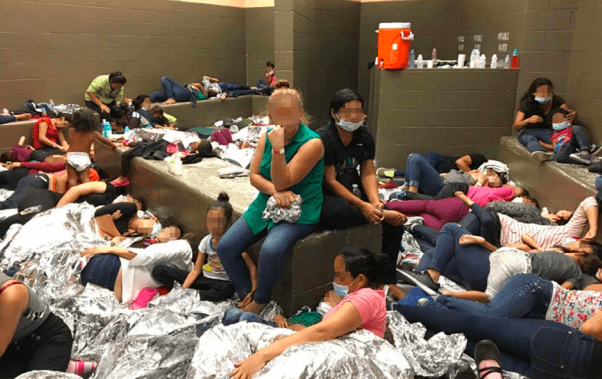Migrants and asylum-seekers detained in the Rio Grande Valley of Texas are suffering.
They’re crammed into standing-room-only cells, so jammed together there is no place to lie down, as health risks grow by the hour and they remain in detention for days, even weeks on end. Many are children.
And there are shocking photos to prove it, in a report by the office of the Inspector General for the Department of Homeland Security, sent Tuesday to Acting DHS Secretary Kevin McAleenan.
Patrol’s McAllen, TX, Centralized Processing Center. Source: OIG
Its title is clear: “DHS Needs to Address Dangerous Overcrowding and Prolonged Detention of Children and Adults in the Rio Grande Valley.”
“The investigators … toured five Border Patrol facilities and two ports of entry in the Rio Grande Valley sector during the week of June 10,” reports NBC News, and found migrants shouting, banging on cell windows and pressing notes against plexiglass saying how long they’d been held.
One said: “Help. 40 Day Here.”
McAllen, TX, Station. Source: OIG
“Senior managers at several facilities raised security concerns for their agents and the detainees,” the DHS report says, adding that “one called the situation ‘a ticking time bomb.’”
“Most single adults had not had a shower [while in] custody despite several being held for as long as a month,” the report says.
“The report also detailed what it called ‘security incidents’ in which immigrants have tried to escape and once refused to return to their cells after being removed during maintenance,” says NBC, adding that the Border Patrol called in special operations officers to “demonstrate it was prepared to use force if necessary.”
At the time of the investigators’ visits, there were 8,000 detainees in custody, with 3,400 having been held longer than the standard 72-hour limit.
